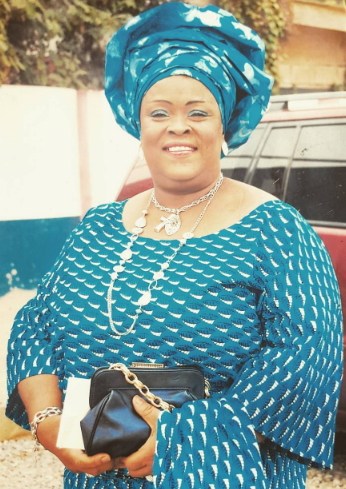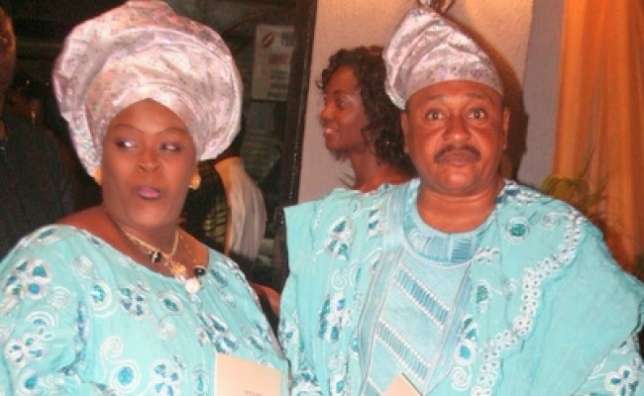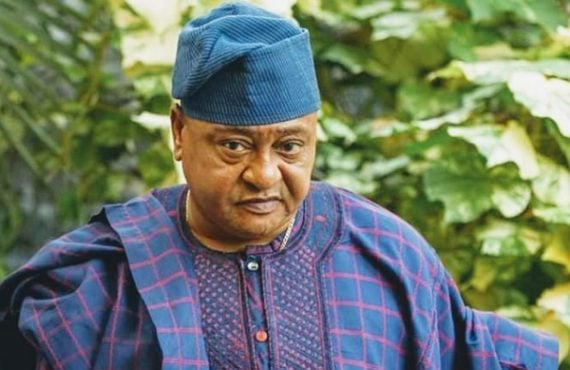There are names in Nigerian cinema that feel like ancestral echoes — voices that refuse to fade, faces that reappear across decades like recurring motifs in a timeless script. Jide Kosoko is one of those names. For many, his career embodies Nollywood itself: the restless experimentation of the Yoruba traveling theatre, the burst of videotape revolution in the 1990s, and the glossy digital triumphs of today.
He has played kings and beggars, fathers and fraudsters, comedians and mourners. Yet, off-screen, his life has often mirrored a kind of script too painful to imagine — one that Nollywood itself has struggled to interpret.
The cameras capture his authority, his laughter, his improvisational brilliance. But away from the lights, Kosoko has carried losses so profound that colleagues, journalists, and even cultural historians often return to them as unsolved riddles in the Nollywood story. What makes his narrative unsettling is not just the repetition of tragedy but the silence that follows each chapter — a silence more haunting than the applause he receives on stage.
This is not merely the tale of an actor’s personal grief. It is also the history of a film industry that grew alongside him, watching him transform pain into performance, and performance into legacy. To understand Kosoko’s journey is to walk through the shadows of Yoruba cultural resilience, the precariousness of fame in Nigeria, and the intimate collisions between personal loss and public expectation.

In this feature, we retrace the milestones of Jide Kosoko’s artistic rise, the mysteries of his personal trials, and the cultural silence that surrounded them. We will see how his tragedies shaped Nollywood’s relationship with mourning, masculinity, and myth. And perhaps, in revisiting these moments, we might also uncover why grief, when attached to a man of such stature, still resists explanation.
The Theatre Child Who Never Looked Back
Before Nollywood became a global phenomenon, before satellite channels and streaming platforms carried Nigerian stories to diaspora homes, there were children like Jide Kosoko who were raised in the living rooms of theatre troupes.
Born in 1954 into a royal family in Lagos, Kosoko’s life seemed destined for tradition and lineage. Yet, like Hubert Ogunde before him, he was seduced by the magic of stagecraft.
In 1964, as a ten-year-old boy, he found himself swept into the world of acting through the “Ifelodun Theatre Troupe,” where he first cut his teeth as a child performer. That early induction was not simply about entertainment — it was apprenticeship in resilience. Yoruba traveling theatre demanded not only talent but also endurance: long journeys, makeshift stages, unpredictable audiences. For Kosoko, these experiences etched into him the philosophy that art was survival, not luxury.
The Yoruba stage, rich in proverbs, satire, and morality plays, was itself a vessel for processing communal trauma. Whether exploring colonial tensions, economic frustrations, or generational conflict, theatre allowed Nigerians to laugh, weep, and endure together. Young Kosoko absorbed this communal energy, learning early that art was a mirror to life’s storms.
Nollywood’s Shift and Kosoko’s Rise
When the videotape boom of the late 1980s and early 1990s arrived, Kosoko’s career reached new heights. The stage veteran transitioned seamlessly into the home-video era, cementing his reputation in Yoruba-language classics such as Asiri Nla, Koto Orun, and Asewo to re Mecca. His face became a fixture in the living rooms of Lagos, Ibadan, and Port Harcourt.

Kosoko carried the authority of Yoruba kingship in his performances, even when he played flawed men. His roles echoed the archetypes Yoruba culture had long revered and interrogated: the patriarch whose word was law, the ruler whose wisdom was tested, the man whose choices carried generational consequences. Unlike many contemporaries who specialized in either comic or tragic roles, Kosoko’s range blurred boundaries. He could provoke laughter in one scene and summon tears in the next.
Yet, just as Nollywood was beginning to export its power across Africa, his personal life began to carry losses that no scriptwriter would dare repeat.
The First Blow: Love and Loss in the Public Eye
Before the applause of Nollywood ever reached him, grief had already begun its quiet rehearsals in Kosoko’s life. The deaths of two of his early wives fell like shadows across the stage of his existence, each one a curtain closing too soon, leaving empty spaces where warmth and laughter had once lived. Their passing was not dramatic in the public eye, yet for Kosoko, each loss was a storm that reshaped the landscape of his heart.
In Yoruba cosmology, repetition is not mere chance but a rhythm of destiny, a drumbeat echoing through life’s unseen corridors. Communities whispered about curses, fate, and spiritual undercurrents, yet the questions hovered like mist — unanswered, intangible, heavy. Journalists, careful not to disturb sacred silences, often turned their gaze elsewhere, but the air around him seemed always tinged with the question: why him?
Kosoko carried his sorrow quietly, like an actor who steps into the light while the world does not see the fractures behind his eyes. Perhaps Yoruba tradition demanded such composure, or perhaps words were simply too fragile to hold the weight of repeated heartbreak. His endurance turned each private storm into a silent narrative, a grief that Nollywood could portray but never truly explain.
Repetition of Pain: The String That Would Not Break
The chain of pain did not end with the early losses. In 2016, the final act of this tragic sequence came with the death of Henrietta, his next wife and popular actress.

Her passing struck not only his heart but the collective consciousness of a watching nation. She had weathered earlier tempests, only to be claimed by the unrelenting tide of fate, reigniting the haunting chorus of questions about resilience, mortality, and life under the spotlight.
For Kosoko, grief was both intimate and unavoidable, a private sea made visible under the glare of public scrutiny. How does a man mourn when every tear becomes a scene, every sigh a headline? For Nollywood, accustomed to staged funerals, Henrietta’s death was a raw reminder that life does not offer rewrites. And for Kosoko, it was yet another invisible script, a melody of sorrow that only he could perform.
First Loss (1990s): Kosoko’s first wife, who was also the mother of his actress daughter Sola, and his second wife both died from complications after childbirth within an 11-month period between October 1992 and November 1993.

Second Loss (2016): His third wife, Henrietta, passed away in 2016.
Current Marriage: Kosoko is currently married to Kareemat, his fourth and only surviving wife. He has 12 children and numerous grandkids.

A Culture Confronting Its Shadows
Jide Kosoko’s story reveals something larger about Nollywood and Nigerian culture: the tension between private grief and public image. Yoruba society, with its elaborate mourning rituals and collective grieving practices, teaches that sorrow should be shared, not hidden. Yet, in Nollywood — an industry obsessed with visibility and spectacle — actors are often expected to perform resilience even in their darkest hours.
This contradiction explains why Kosoko’s string of tragedies struck so deeply. It was not only that he suffered losses; it was that he was forced to live them in the glare of the public eye. In mourning, he was not simply a widower; he was a cultural icon carrying the burden of communal speculation. His grief became everyone’s story — yet no one could fully explain it.
Legacy in the Midst of Pain
Despite his personal storms, Kosoko continued to create. He directed, acted, mentored, and remained present in Nollywood’s shifting landscape. Younger actors, from Odunlade Adekola to Funke Akindele, cite him as inspiration. He became proof that art could outlive tragedy, that resilience was not just a theme for film scripts but a survival strategy in real life.
Today, as Nollywood expands globally through Netflix and cinema distribution, Jide Kosoko’s career stands as a testament to endurance. He is more than the tragedies that stalked him, though they are inseparable from his legacy. He is also the laughter, the discipline, the improvisation, and the Yoruba storytelling tradition that shaped him.

Parting Words: The Grief Nollywood Could Not Explain
Every actor carries two scripts: the one written for them, and the one life insists they perform. Jide Kosoko’s public script is filled with awards, iconic roles, and cultural authority. But the private script — written in the ink of repeated loss — remains more haunting, more mysterious, and perhaps more enduring.
For Nollywood, his tragedies remain unresolved not because there are no explanations, but because some griefs refuse explanation. They belong to a realm where culture, fate, and silence meet.
In the end, Kosoko’s life reminds us that Nigerian cinema is not only about fiction. It is about human beings whose real lives sometimes hurt more than the stories they tell. And perhaps, in honoring his resilience, Nollywood acknowledges that even the strongest actors cannot always rewrite the scripts life gives them.














